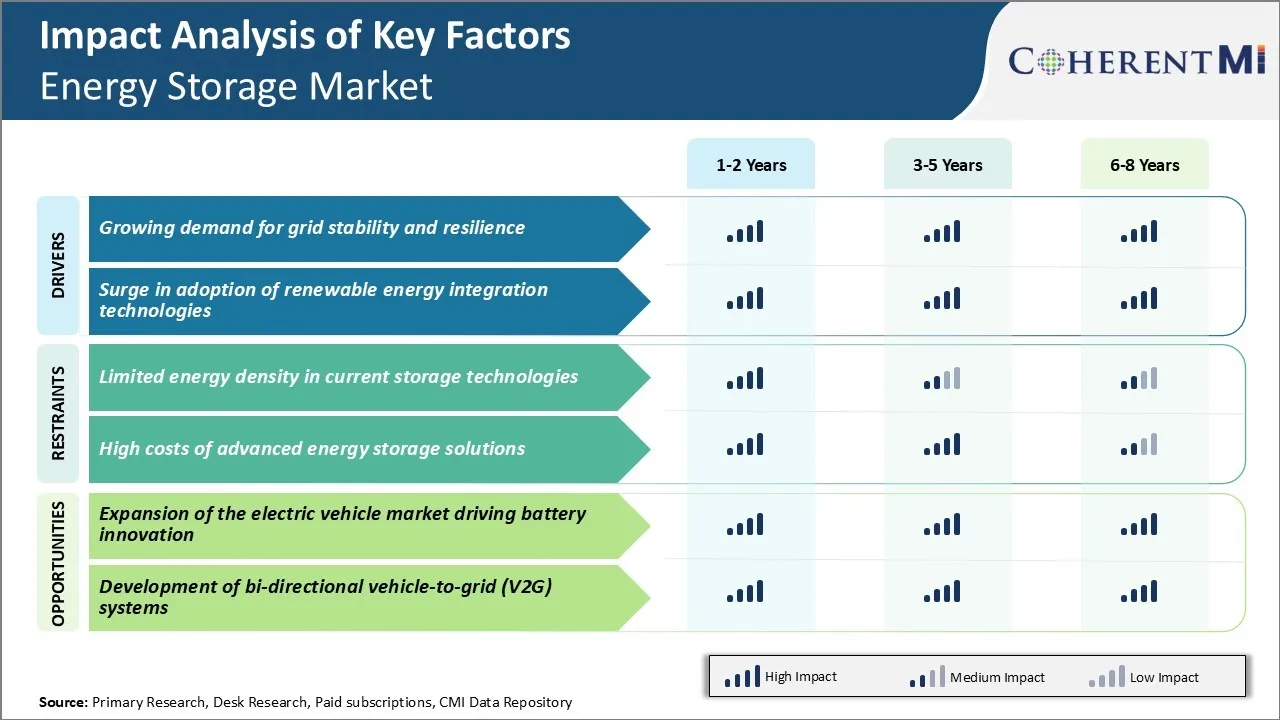Energy Storage Market Trends
Market Driver - Growing Demand for Grid Stability and Resilience
One of the primary drivers that has been propelling growth of the energy storage market is growing demand for grid stability and resilience across various regions worldwide. Energy storage systems have emerged to provide an attractive solution by absorbing excess electricity produced during periods of low demand and releasing it when supply is short. They help smooth out the variability brought in by renewables and maintain grid frequency and voltage within acceptable ranges.
Energy storage technologies like lithium-ion batteries have demonstrated their effectiveness in quickly balancing supply-demand gaps and stabilizing the grid during emergencies caused by natural disasters. Many utilities across regions like USA, Europe, Asia Pacific are proactively deploying large-scale storage installations to enhance grid flexibility and strengthen their infrastructure against climate-related outages.
Governments and regulatory bodies are also supportive through conducive policies and incentive programs. This growing importance of energy storage for grid stability and resilience around the world continues to positively influence the energy storage market expansion.
Market Driver - Surge in Adoption of Renewable Energy Integration Technologies
Another prominent driver for the energy storage market is the surging popularity of renewable energy integration technologies worldwide. With the looming threat of climate change, most countries have ambitious targets of transitioning to cleaner sources of electricity generation and reducing dependence on fossil fuels.
The hybrid renewable-plus-storage model also enhances power quality by regulating grid frequency and voltage more effectively. Governments around the world are proactively supporting such integrated approaches through policy incentives.
For example, several US states have introduced renewable portfolio standards that allow energy from solar-plus-storage systems to meet a greater portion of their clean energy targets. In Europe, mechanisms like feed-in-tariffs pay renewable generators a premium for adding storage capabilities. Countries in Asia Pacific are also introducing net metering benefits for integrated systems.
With technology costs declining rapidly, many corporations and homeowners are increasingly preferring renewable solutions bundled with battery storage due to their reliability. All these favorable conditions have boosted massive deployment of renewable integration technologies, directly spurring growth of the energy storage market.

Market Challenge - Limited Energy Density in Current Storage Technologies
One of the key challenges currently faced by the energy storage market is the limited energy density of prevalent storage technologies. Energy density refers to the amount of electrical energy that can be stored per unit mass or per unit volume of a storage device.
While lithium-ion batteries are the mainstay of current energy storage solutions, they have relatively low energy densities compared to fossil fuels. This limitation restricts the usability of battery-based systems, especially for transport applications which require a high energy capacity for longer driving ranges. The low energy density also increases the physical size, weight and costs of battery packs. Battery manufacturers are continuously working to improve lithium-ion battery chemistries to boost energy densities.
However, there is a fundamental trade-off between energy density, power and lifetime that poses technical bottlenecks. Alternative technologies with theoretically higher energy densities such as lithium-sulfur and solid-state batteries are still undergoing extensive research before commercialization.
Market Opportunity - Expansion of the Electric Vehicle Market Driving Battery Innovation for Energy Storage
The rising electric vehicle industry presents significant opportunities for the energy storage market. With more automakers committing to electrify their model ranges, global EV sales are projected to grow substantially in the coming years. This expansion of the EV market will drive tremendous demand for lithium-ion batteries from the transportation sector. Battery manufacturers are ramping up production capacities to cater to the needs of automotive OEMs, driving trends in the energy storage market.
Advances in areas such as solid-state electrolytes, silicon-based anodes and lithium-metal batteries aimed at enhancing EV battery performance will trickle down to benefit the stationary energy sector. The growing EV industry thus serves as an innovation engine enabling energy storage technologies with higher energy capacity that can accelerate the deployment of renewable energy on the grid.